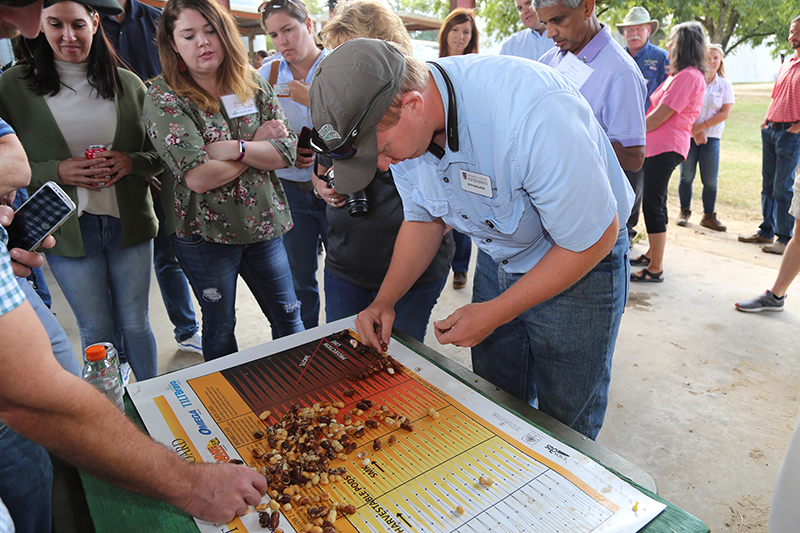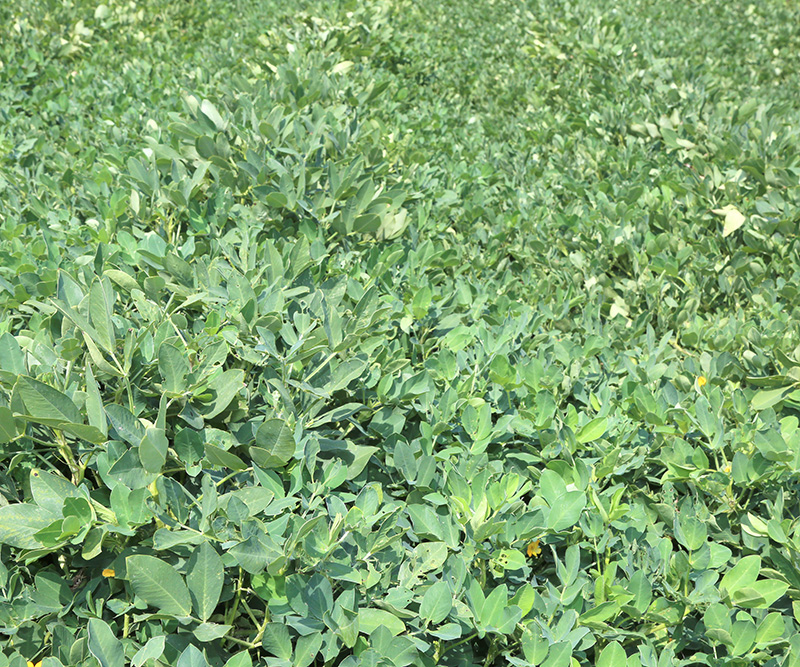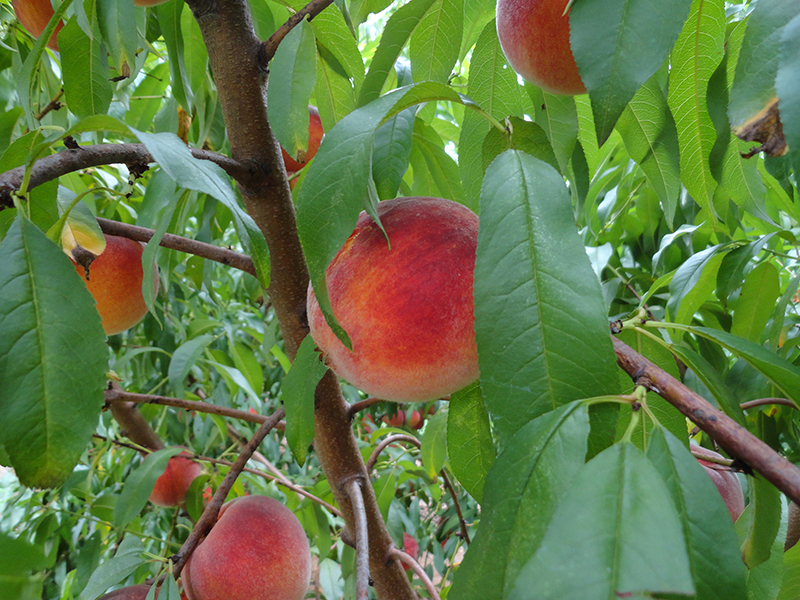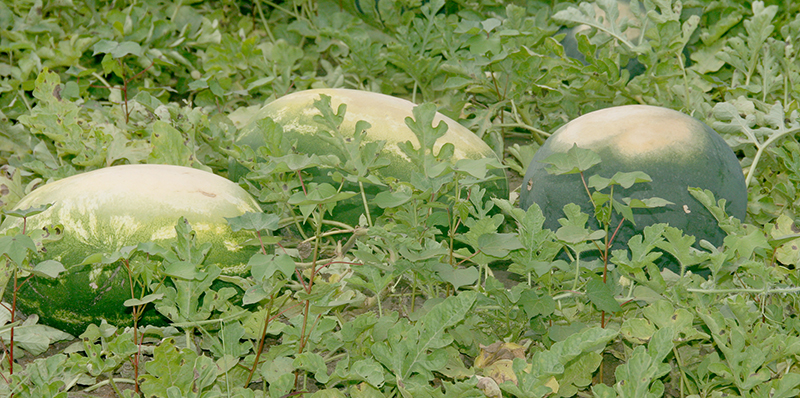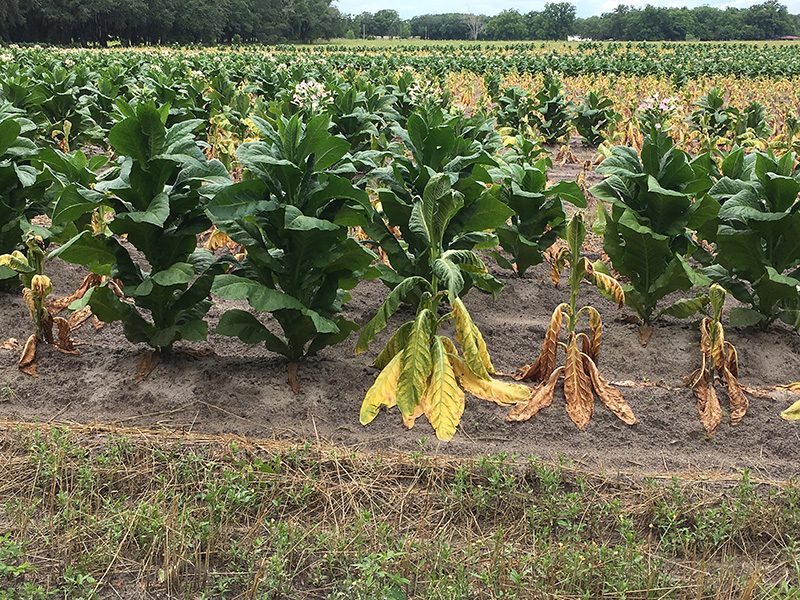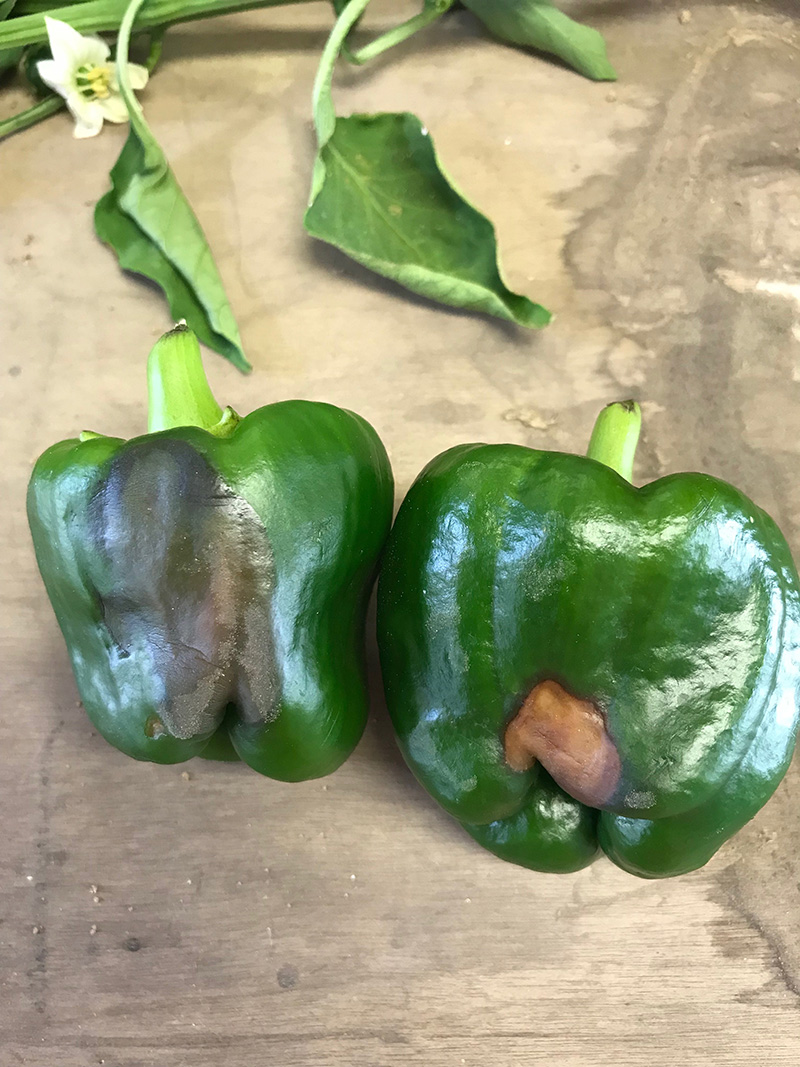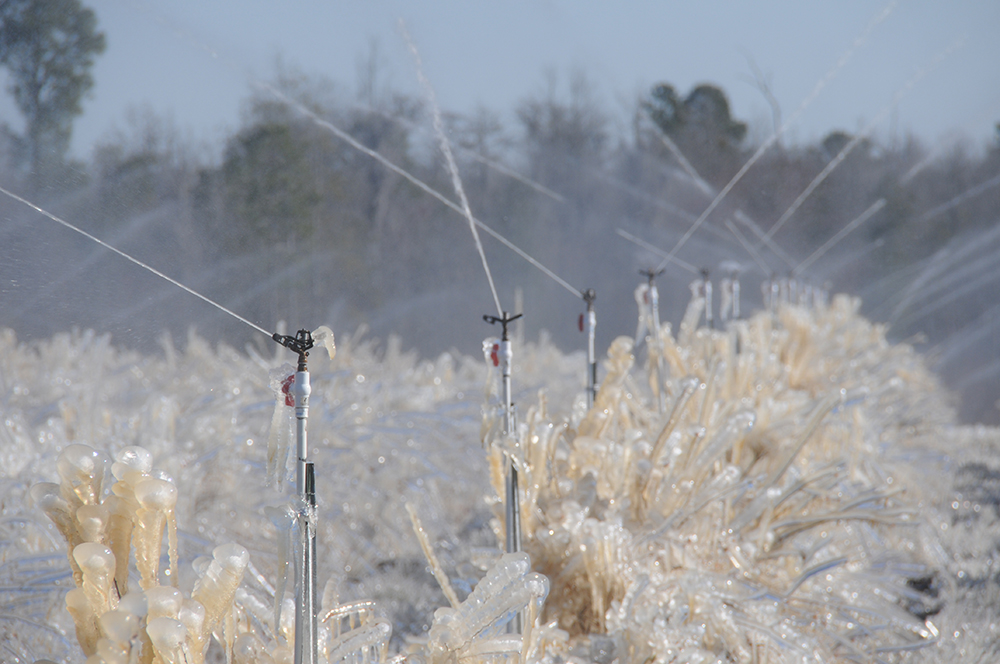 CAES News
CAES News
Sketchy Weather
Georgia weather is predictably unpredictable, bitter cold one week and balmy the next. For that reason, University of Georgia Cooperative Extension experts urge Georgia growers to pay close attention to the weather over the coming months and be prepared to use irrigation for frost protection and potential dry conditions as we move into spring.

